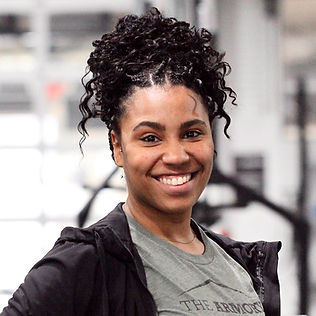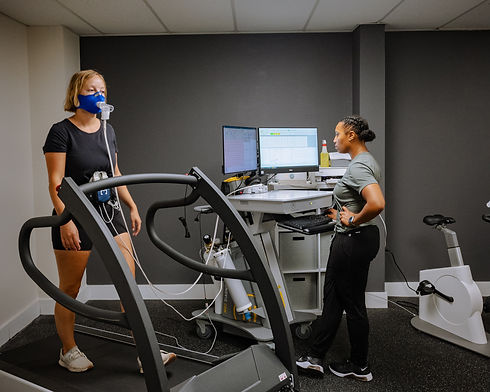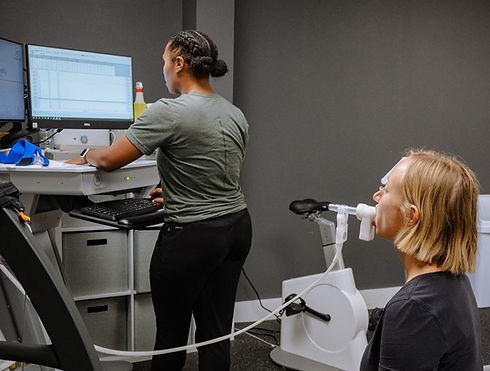Exercise Physiology
Exercise physiology is the study of how the body's structures and functions are altered by physical activity and exercise. It examines the acute and chronic adaptations of the body to various types and intensities of physical activity. There are two types of exercise physiology - sport and clinical. Sport Exercise Physiologists use knowledge of the body’s response to exercise to develop training regimens for athletes to help improve athletic performance. Clinical Exercise Physiologists use the knowledge for treatment and prevention of chronic diseases such as diabetes.
This field combines principles from key areas of exercise such as muscle function and adaptation - meaning that it investigates how muscles generate force, produce movement, and adapt to different types of exercise (i.e. endurance vs. resistance training), muscle hypertrophy - (growth) and atrophy (wasting), fiber type distribution, and muscle metabolism, cardiovascular and respiratory responses - meaning examining how exercise impacts the heart, blood vessels, and lungs while looking at changes in heart rate, stroke volume, cardiac output, blood pressure, and oxygen uptake (VO2 max) while simultaneously analyzing the role of different energy systems in fueling physical activity. Understanding the effect of exercise on the human body allows for qualified professionals to utilize education, lifestyle intervention, and specific forms of exercise to rehabilitate and manage acute and chronic injuries and conditions.
Meet Our Staff

Breyona Colley EP-C
Exercise Physiologist • Volleyball Skills Coach
Brey received her Associates Degree from Howard University in Sports Kinesiology and went on to get her bachelor's degree from Ohio Dominican University in Exercise Science with a minor in sports nutrition and biology before earning her Exercise Physiologist accreditation from the American College of Sports Medicine (ACSM)

Christine McClaren CPT (NASM)
Exercise Physiology Assistant
Christine is passionate about helping others reach their health and fitness goals through personalized support and a welcoming, empowering approach. She holds a B.S. in Health and Sports Studies from Miami University of Ohio, with a focus in Exercise Science, and is a certified personal trainer through the National Academy of Sports Medicine. Christine is known for building strong client relationships and creating a positive, encouraging environment where every individual feels motivated and equipped to succeed.
Exercise Physiology Consultations
An exercise physiologist will develop an exercise program that is designed to improve mobility and fitness based on your specific health conditions & goals.
During an exercise consultation, the exercise physiologist will take a brief medical history with an emphasis placed on cardiovascular and orthopedic history. A detailed exercise history with preferences and current activities will be discussed. A review of your recent diagnostic testing will be examined and may be used to guide recommendations for your exercise program.
A recommended test to be done either during, or prior to this consult, is our VO2 max.
Together you and the exercise physiologist will discuss short-term and long-term goals to provide the most appropriate exercise program. All exercise components, guidelines, and techniques are explained and demonstrated if needed, for a comprehensive cardiovascular, strength training, and flexibility program.
Exercise physiology visits are highly encouraged and are included in your SHIELD membership.


VO2 Max Testing
The VO2 Max Test reflects a person's ability to perform sustained exercise by measuring when the body switches from aerobic respiration to anaerobic respiration.
Using this information, we can gauge a patient's heart rate zones, create efficient training programs for patients, and get an overall baseline understanding of a patient's cardiac fitness level.
Prior to initiating testing, an Exercise Physiologist will collect data from you to gain more accurate results from the testing equipment. They will then attach cardiac electrodes to your chest and a few on your left side to monitor your cardiac activity during the test. You will also be placed in a face mask that is connected to the machine to monitor gas exchange throughout the test. A few baseline measurements will be taken, you will then be placed on the treadmill, and the test will then begin. There are seven potential stages that can be performed during testing, each with increasing difficulty. This is a test of your maximal exertion, so ultimately, you will determine when the test is completed. It is asked that you push yourself to your absolute maximum for the best results to be provided.
Resting Metabolic Rate Testing
The RMR test measures the amount of calories that a person's body burns while at rest, as well as, calculates an individual's fat and carbohydrate utilization.
This information helps more accurately determine a patient's dietary and fitness needs to maximize their physical capabilities and reach their wellness goals. Whether those goals are competing at the next level or improving everyday life.
Before beginning the test, an Exercise Physiologist will collect some data from you to get more accurate results from the testing equipment. They will then strap a mask on your face with a rubber nozzle that you breathe through. You will then sit in a chair for the duration of the test, approximately 15 minutes, simply breathing through the nozzle. You are welcome to get on your phone, or any similar activity during the test.
Exercise Physiology Prices
Consultation
VO2 Max Testing
Resting Metabolic Rate
SHIELD Members
Included!
Included!
Included!
ARMORY Standard & Pro Fitness
$160
$160
$80
Non-Members
$200
$200
$100
%20SOLO%20black_edited.jpg)










